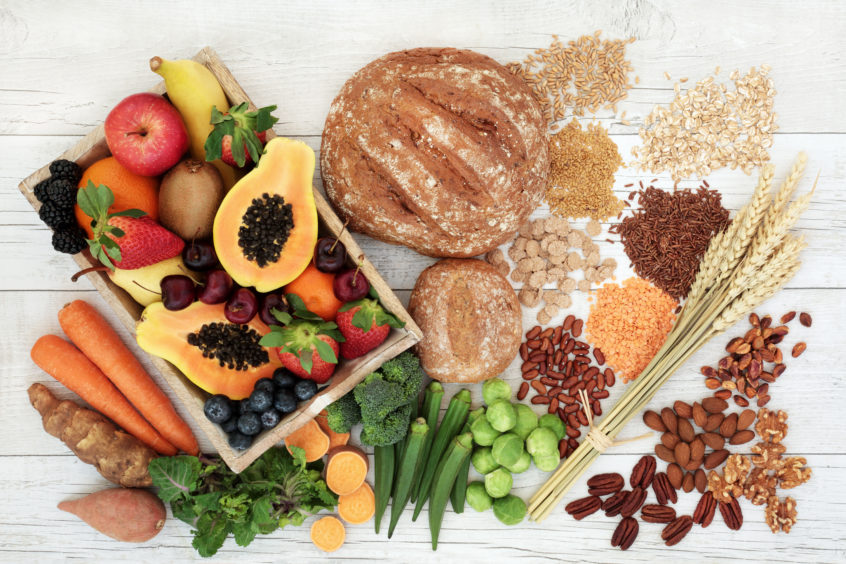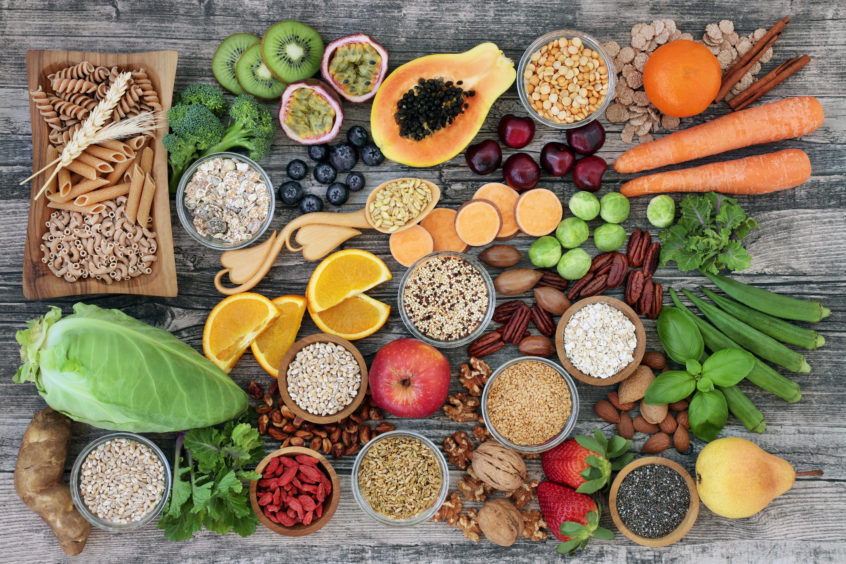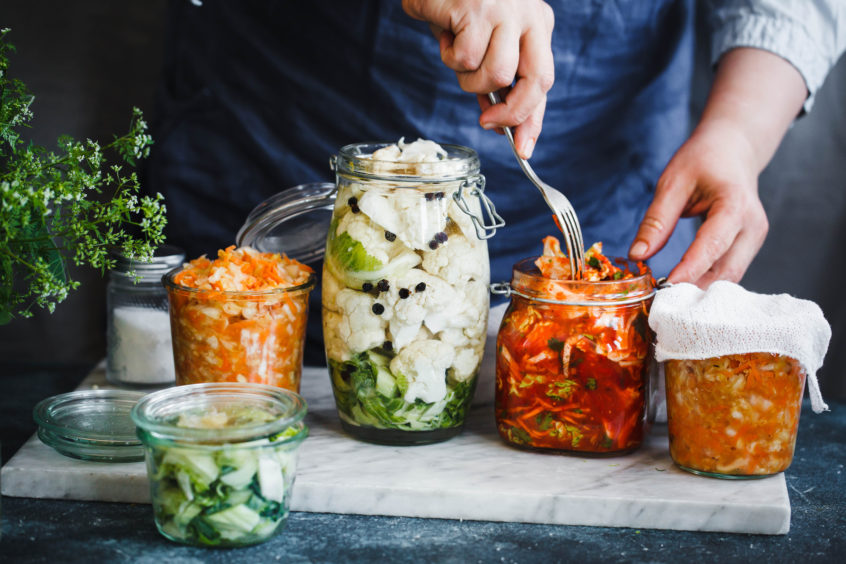From avoiding heartburn and indigestion to protecting your longer-term health, in Love Your Gut Week dietitian Jo Travers shares some small ways we can make a big difference through what we eat.
The term digestive health has become one of those catch-alls that can easily pass us by.
But in reality, how well our digestive system functions can affect almost every aspect of our health.
If it’s neglected it can lead to problems with heartburn and indigestion, irritable bowel, constipation and nutritional deficiencies – and can contribute to more serious conditions, too.
That’s the message in Love Your Gut Week, a campaign run by Yakult UK, in association with the Guts UK charity, Bowel & Cancer Research, St Mark’s Hospital Foundation, The IBS Network, the Bowel Disease Research Foundation and the Primary Care Society for Gastroenterology.
Kicking off today, it aims to increase awareness of digestive health issues and chronic conditions, as well as the importance of acting on symptoms fast.
We can do that by making some simple dietary changes that not only help combat those immediate digestive problems, but also influence our longer-term health.
Here, leading dietitian Jo Travers sets out the three steps we can take today to improve our gut health…
1. Increase your fibre intake
Fibre is integral to our digestive health for a few reasons.
It helps to bulk up the stool as the food is moving through our digestive system, and it feeds the bacteria in your gut, and that’s so important because the bacteria in the gut do a myriad of things from extracting nutrients from the food we eat that our digestive systems can’t, to making neurotransmitters (chemical messengers for brain cells) communicating with the brain through the gut-brain axis which is a two-way pathway, and it’s facilitated by the bacteria in our guts. So when we eat food with fibre in it – and different foods have different fibres and different bacteria like to eat those different fibres – so getting a variety of different plant foods is really important.
The key thing is we get fibre from plant foods and that can go from things like beans, lentils and pulses to granary bread, fruits, vegetables and nuts. All those different fibres feed the gut bacteria and the ones we really want to cultivate.
It’s easy to incorporate more fibre into our diets, but most people in the UK don’t get enough. The data we have shows people are only really getting half of what they could do with.
It’s really easy to increase it bit by bit. For example, if you’re making a Bolognese and you put in half mince and half lentils you’ve probably quadrupled the fibre intake of your meal just by doing that one thing. Another thing you can do is switch your bread from having a white slice to half and half; already you’re upping your fibre, and if you can take it one step further and switch to granary with seeds as well you’ve done something significant. So making small changes throughout the day can have a big impact.
The other big thing is to get your five-a-day. If you’re eating five portions of different fruit and veg each day you’re providing your gut with the right food it needs to thrive, and when we have thriving bacterial colonies in our gut it has an impact on all of our health.
2. Power up with plants
Plant-based foods are fantastic for gut health. Some people might think, ‘I already eat fruit and vegetables’, but really what I’m talking about is getting a bit more plant-based proteins. At the moment in the UK most of our protein comes from meat, fish and eggs, those things are all good – they’ve got loads of vitamins and minerals and are really useful – however, when we only have those kinds of proteins we miss out on all the beneficial things that we get in the plant-based proteins which are things like beans, lentils, chickpeas, and some grains like quinoa.
The reason they are so good is not only do they give us the protein we need for our body, they also have all these beneficial compounds. One is fibre – I always come back to fibre – and the other is phytochemicals (plant chemicals) and they’re beneficial above and beyond the vitamins and minerals we get from plants. They help reduce inflammation; when we have inflammation in our gut it affects the conditions there and when the condition is changed it’s no longer a nice environment for the beneficial bacteria to live and they struggle to thrive there and that can lead to stomach cramps, IBS and constipation. So having a little more plant-based protein in our diet is really beneficial.
So, again take a semi-skimmed approach to the meat we eat and just add in more plant-fibre, as with the Bolognese, half meat, half lentils. You can do something similar with so many dishes and it’s really convenient to do now. You can buy pouches of ready-cooked lentils and beans, or you can use tinned beans and chickpeas so I encourage people to get a few more plant-based proteins in our diet.
3. Feel good with fermented food
Fermented foods may be quite new to the Western world but they’ve been eaten traditionally for millennia. Fermenting is just a traditional way of preserving food.
The reason it’s so good for us is that when you ferment food, bacteria proliferate and if you get the right bacteria, as with yoghurt which contains lactobacillus, when you introduce the bacteria to your gut it can colonise. Not only can it reproduce and do all these beneficial things, it can also swap genes with the bacteria that are already there. Bacteria can evolve very quickly so it can help the bacteria that are already in our guts.
There’s a fermented food or drink for everyone, ranging from live or ‘bio’ yoghurt to kefir or kimchi. Sauerkraut is another one. If you want to get really involved you can make your own, but you do have to be quite careful with fermented foods, and make sure they’re made in the traditional way.
If you’re making them at home there are lots of recipes you can try out and I’d encourage you to do that because being involved with food is such an important part of being connected to it.
Eating fermented food is the icing on the cake, supporting your gut health by feeding it really well.
Sleep, exercise and wellbeing help your gut too
As well as these things we can do with food and drink, there are other things we can do for our gut health. We’re told both diet and lifestyle are good for our health and that’s because of our gut health.
When we exercise it gets everything moving, it gets the heart pumping and blood flowing through the body and that actually creates the right conditions in the gut for the good bacteria to thrive there. As well as that it can help to reduce inflammation in the gut so that it’s a happy place for the bacteria.
In the same thread, is sleep. When we have a disrupted sleep it can again affect conditions in the gut to make it less hospitable to some of these beneficial bacteria that we really need. So diet, exercise and sleep are the holy trinity of gut health.
Read more on gut health:


